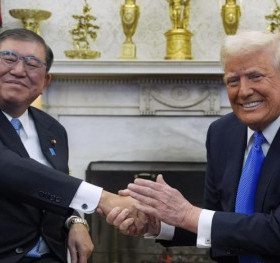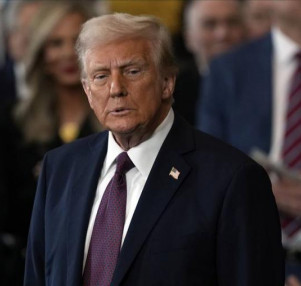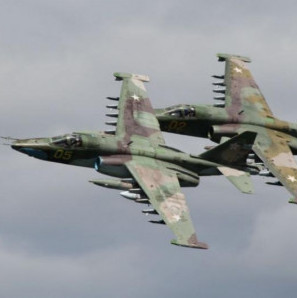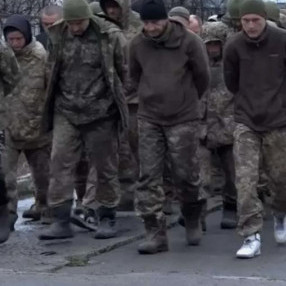The World Chechen Congress was created in the middle 90s by declaring purposes of supporting the unity of the Chechens within the Caucasus region and beyond. The Congress also undertook a commitment to “represent the interests of the Chechen people in the international arena.”
Two days before the opening of the congress D.Teps replied to questions of a correspondent of the Polish daily Gazeta Wyborcza. To understand the political orientation of this Congress, one should take a look at a few answers of its President.
D.Teps said that originally about 200 representatives of the Chechen communities in Russia and diaspora in Europe, Asia, Middle East and North America had been expected to arrive in Warsaw. The president was also expecting several emissaries of the "warring partisans in the Caucasus Mountains and the delegates from Chechnya itself” to arrive.
What deserves separate attention is D.Teps’ opinion about participation in the event of the so called “President of the independent Republic of Ichkeria” Ahmed Zakayev, a fugitive from Russian justice living in the UK.
“Ahmed Zakayev is going to come to Poland too - the head of the Chechen independence movement living in London, successor of the Presidents Johar Dudayev and Aslan Maskhadov who were killed in the wars with the Russians,” said the St. Petersburg lawyer and president of the Congress.
Frankly and simply. The most distinguished guest of the Congress is none other than the successor of the one who had first planted and cultivated the seeds of separatism in the Chechen Republic, and the other one reaped his fruits. The long-suffering Chechen and other peoples of Russia are well aware of the price of this crop.
By itself the composition of conventioneers is already indicating the general direction of this meeting themes and outcomes. Foreign supporters, of which the overwhelming majority uphold the already hopelessly outdated idea of separation of Chechnya from Russia, gathered in the town of Pultusk, 80 kilometers from Warsaw.
“We have not invited any representatives of the pro-Russian authorities in Grozny, as we consider Ramzan Kadyrov appointed by Kremlin an usurper and Moscow functionary, but not a representative of the Chechen community,” said D. Teps. And that is the truth. The invited “representatives of the pro-Russian authorities” could put the Congress in pie so that its organizers will not find it funny…
The author of this material is grateful to D.Teps for his frankness and courage in defining the personality of the current leader of the Chechen Republic. Ramzan Kadyrov is not so simple as it seems sometimes. His decisions are not always clear for the people living outside Chechnya. He is notable for his tough policy in governing the republic and irreconcilability to those who wants to return his nation on the war-path.
As a politician, Ramzan Kadyrov, is still young. But this disadvantage is naturally eliminated with age. Every day he has to learn. He has to learn reconstructing Chechnya with a new civil society, which should forget the tragic events of the 90s and live in harmony with other peoples of Russia.
This is his life-work. And Ramzan Kadyrov is true to it and consistent in his policy. Yes, all the control of the republic is in his hands. He personally conducts the fight against the bandit underground in Chechnya and coordinates actions of the subordinate to him power structures with governing bodies of other North Caucasus republics.
However, Ramzan Kadyrov can not be called an usurper by any stretch of imagination. The parliament, non-governmental human rights organizations, foreign missions are successfully operating in Chechnya. According to D.Teps, the president Johar Dudayev was a democrat. But who if not he in due time disbanded and abolished the Chechen parliament, threw outward the Chechen territory hundreds of thousands of native persons of the republic and condemned his people to terrible and futile massacre.
“At the meeting in Poland, we want to remind the world about the ongoing war in Chechnya, to put everybody wise about the fact that from year to year it becomes more and more violent, and it radicalization threatens not only the Caucasus and Russia, but also the whole Europe,” says D.Teps.
Thus the St. Petersburg lawyer explained the true purposes and reasons for the increased terrorist activity in Chechnya on the eve of the convention of the World Chechen Congress. According to the reports by the Federal Security Service and the Russian Defense Ministry, sallies of the bandit underground in the country have recently dropped off, and only in August 2010 defiantly rose.
Congressional leaders needed to show their involvement in the antigovernment forces in Chechnya, to demonstrate the conventioneers their influence on the course of events in the republic. Well, they proved it. But who needs it? It is doubtful whether the ordinary people of the village of Tsentoroy, Kadyrov’s family home, would like to come back to the events of the 90s.
To use D.Teps' expression, the war (i.e. terrorism) is threatening not only Russia but also Europe. It’s a correct comment. But what has the calm and prosperous Europe to do with it? Are behind these words the Congress plans to expand influence of the militant Islamic “emirs” for the dramatically quantitatively increasing Muslim community of Eastern and Western Europe?
One can feel some embarrassment of D.Teps on the eve of the congress. “One of the main objectives of the meeting near Warsaw is the resolution of disagreements between the Chechen communities and leaders, an attempt to build unity,” he says the Polish newspaper.
What are the differences? But because the arrived representatives of Chechnya and already many delegates of the foreign diaspora appraise the situation in the republic in a completely different way, oppose the continuation of fighting for Chechnya secession from Russia, they have changed their views on Russia’s politics and that of Ramzan Kadyrov himself. They have been convinced of the futility of imposition of radicalism and extremism in Islam, which lead the Caucasus nations to deadlock.
It was reported to a correspondent of the Arab influential regional Ash-Sharq al-Ausat newspaper by the chairman of the World Congress of Ulema (Ulema is a Muslim world expert, a lawyer), Sheikh Youssef al-Qardaoui. His position with regard to the situation in Chechnya is not to be suspected of prejudice or loyalty to the leadership of the republic.
After completion of the work of the Congress Youssef al-Qardaoui met with a delegation of the World Chechen Congress and called on the “Chechen separatists to assume legally relevant steps to renounce violence in order to restore security and stability in Russia.”
“I was visited by a delegation of Chechen ulema with a request to address the Chechen brothers, who in their activity have chosen violence and brutality, expand murders and spill blood to achieve their goals. These people ignore the laws of the Muslim religious balance, the primacy of Mohammedan law and the laws of Alat, hiding under numerous calls for their actions,” said Youssef al-Qardaoui .
The worldwide recognized Muslim lawyer said that Islam acknowledges and respects the departure from a larger sin to a smaller one, as the lesser of two evils – “stopping to kill Muslims and non Muslims.”
“Today we must focus all our efforts on two issues - ending the violence and redemption,” explains Youssef al-Qardaoui. Referring to the Holy Book (the Koran), he responds to his own questions, in what cases “the war against infidels (jihad)” is allowable and how the Koran and the Islamic law interpret to use of Islam as a religion for achieving freedom and independence.
Youssef al-Qardaoui enumerates the names of extremist groups in the Middle East and North Africa, including al-Qaeda, who use terrorist forms of struggle. According to him, these organizations deliberately avoid the parliamentarist forms developed in the whole world or active participation in trade unions or other non-governmental institutions for human rights protection.
Grossly distorting the interpretation of the Holy Book, the terrorist leaders carry over the people who know the Koran in a perfunctory manner, force them to spill blood of innocent people, go to the needless deaths and create hostility among the Muslims, between Muslims and non-Muslims.
The Chairman of the World Congress of Ulema calls on his coreligionists of Chechnya to study the Koran and the Prophet Muhammad's precepts requiring that a true Muslim should observe wisdom and toleration, be able to forgive and make satisfaction for sins.
These are the views of the two chairmen of the World Congress. The one, a lawyer by education, calls for the continuation of fighting in Chechnya, the other one, a theologian known throughout the Muslim world, calls for the termination of the bloodshed.
One has the impression that the current convention of the World Chechen Congress in Poland was made public only because Ahmed Zakayev who had been expelled from the country by the Polish authorities, failed to attend it. The Congress itself seems to be nicely dead. It is not mentioned even the western media loyal to Chechen separatists.
And conversely, the leader of the Chechen Republic Ramzan Kadyrov has convincingly won the information battle connected with the conduct of the Congress. Conversation of the Chechen elders lawyers with such a man as Youssef al-Qardaoui contributed to strengthening the authority of the President. Perhaps, fast results of this meeting should not be expected. But in the long term, they will certainly have a big positive impact on the development of the situation in the republic.
Such events may have fateful consequences.









